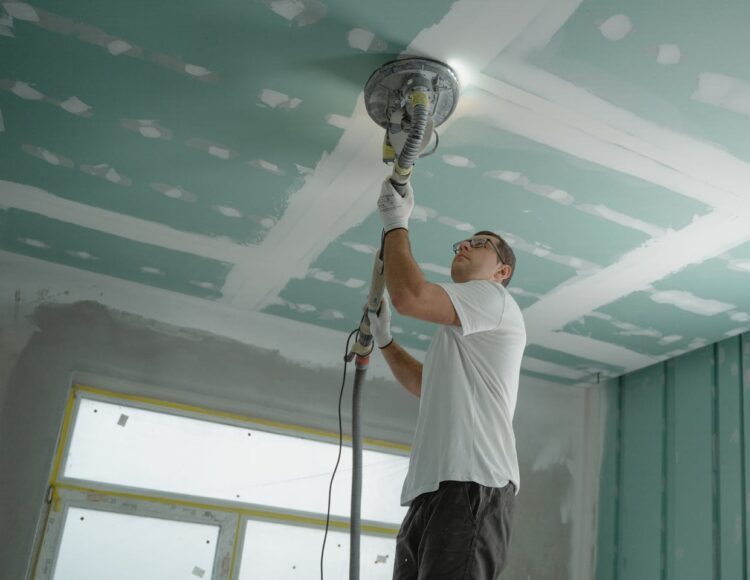The Italian capacity building webinar, organised by ATER Trieste and APRE with support from the Professional Association of the Architects of Trieste as part of the Super-I project, delved into the challenges and opportunities in enhancing energy efficiency and sustainability in residential buildings. Topics included energy-saving practices, legal requirements, and the integration of renewable energy sources. Public Private Partnerships (PPPs) were highlighted as effective models for large-scale renovations, emphasising the need for community engagement. Insights from Slovenia underscored hurdles such as legal barriers, lengthy investment payback periods, and fragmented ownership hindering energy renovations in non-profit public housing.
The Danish capacity-building hybrid event highlighted notable challenges such as legal complexities, extended payback periods, insufficient grants, and outdated regulations that impede energy renovation efforts. Furthermore, tenants’ financial constraints often hinder their participation in energy efficiency initiatives. Participants widely acknowledged the significance of strategic initiatives aimed at promoting local renewable energy projects, emphasising the importance of collaborative efforts with the private sector highlighted legal complexities, extended payback periods, and insufficient grants as major challenges in energy renovations.
Many participants identified The National Building Fund as a major source of financing for building renovations involving energy-saving measures. However, there remains a lack of understanding regarding obtaining loans, especially with ESCO financing models. Furthermore, participants highlighted the importance of financial guarantees from entities like the National Building Fund to mitigate risks and facilitate funding for energy efficiency measures.
BL highlighted the social housing sector’s aspiration to actively participate in the green transition on an equitable basis with the broader society. However, on top of financial constraints, there are significant technical and regulatory barriers, for instance to electricity production through PV, which is a key priority for the social housing sector. Furthermore, social housing companies also face regulatory restrictions that prevent them from becoming full members of energy communities. Despite these regulatory constraints, some companies choose to become members of energy communities anyway, somehow navigating the limitations to participate in renewable energy initiatives.
The Italian capacity building webinar, organised by ATER Trieste and APRE with support from the Professional Association of the Architects of Trieste, offered valuable insights into the challenges and opportunities surrounding energy efficiency and sustainability in residential buildings. Discussions ranged from the significance of energy-saving practices, legislative requirements, and renewable energy integration in residential buildings to strategies for social acceptance and operational proposals for EE renovations.
Public Private Partnerships were highlighted as effective models for large-scale renovations, with emphasis on managing tax credits and financial capacity, and on envisioning comprehensive contractual structures to guarantee savings and manage risks.
Moreover, the webinar underscored the need for community engagement, recognising proactive involvement from social housing building tenants and transparent decision-making as essential elements, in the perspective of a three-dimensional social acceptance, at the community, policy-makers and market levels.
Additionally, European funding opportunities were identified as crucial avenues for supporting sustainable initiatives in the Italian residential sector. Insights into Horizon Europe Cluster 5 and the Built4People partnership provided valuable information on funding opportunities and objectives, particularly in the context of energy-efficient initiatives.
Commenting on the Slovenian event, Nina Pečar of the National Housing Fund of Slovenia highlighted there are many challenges in terms of energy renovations of non-profit public rental housing – legal, long investment payback period, insufficient grants, insufficient attractiveness, outdated regulations. Fragmented ownership issues also pose some challenges as many homeowners are unreceptive and unfamiliar with the potential benefits of renovation. Poor information about the renovation measures and the expected effects on users’ health and comfort as well as insufficient understanding of the technical possibilities are also obstacles. Energy-efficient building renovations can be expensive and due to the limited amount of financial resources the Fund has to make a difficult choice between building new residential buildings or energy rehabilitation of existing ones.
However, there is a lot of potential, as the housing stock is old and needs energy renovations. Some financial institutions in Slovenia now offer more favourable loans for energy renovations, renewal of calls for grants, increase in grants to encourage investment in the energy efficiency of buildings. “More grants and a lower interest rate on loans for the energy renovation of buildings would greatly contribute to an increase in renovations,” Nina Pečar noted.
